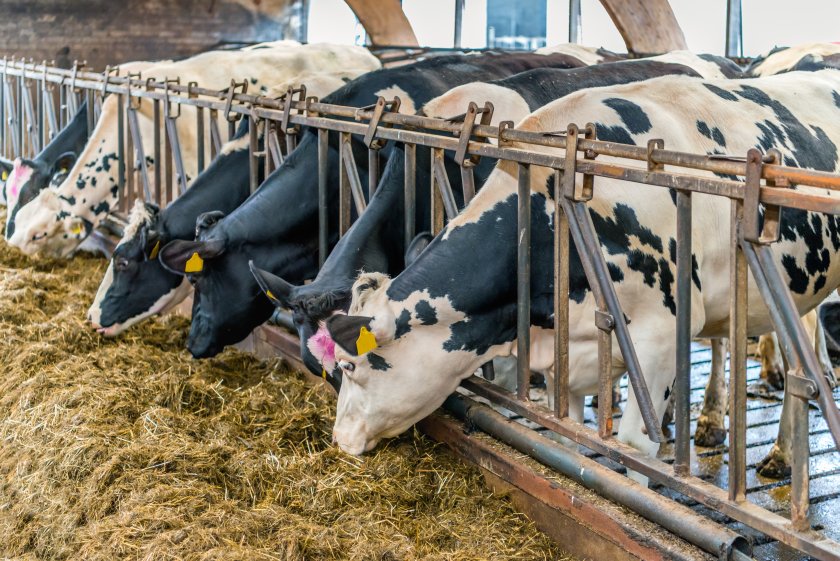Farmers need clarity on methane supressing feed products, NFU says

Farmers need clarity on how methane supressing feed products will work as well as their impact on animal welfare, the NFU has said after Defra seeks new ways to cut emissions.
The government has confirmed it will work with farmers to encourage the widespread adoption of methane suppressing feed products.
Research has shown that feed products with methane-inhibiting properties could significantly reduce emissions, particularly in the case of confined cattle.
These products may include ingredients like methane production inhibitors, seaweeds, essential oils, organic acids, probiotics, and antimicrobials.
The products are expected to enter the market from 2025, with farmers widely adopting them no later than 2030, Defra said.
While the news has been welcomed by the NFU, it said methane supressing feed products were just "one piece of the puzzle", which "need to work alongside a range of other methane reducing techniques".
In its full response, Defra has outlined its plans to “incentivise uptake” of methane supressing feed, addressing concerns that were raised by the NFU following the initial call for evidence about the additional input costs that may arise.
Defra also said it hoped to work closely with industry to ‘explore the best approach’ of introducing an incentives package.
Despite being positive about the announcement, the NFU said there were still a number of other issues around livestock which needed to be addressed for the adoption of methane supressing feed to be successful.
These range from the financial impact of additional input costs, ensuring credible certification and widespread availability, to finding solutions to inconsistent and unequal intake by cattle in grazing systems.
The union also said that there were “crucial questions that still need answers”, such as whether the correct calculator was being used to truly represent the warming potential of methane from livestock.
NFU Deputy President Tom Bradshaw said: “Farmers need clarity on how these products work, their long-term effectiveness and, most importantly, their impact on animal health and welfare.
“British farmers have a huge amount to offer when it comes to producing sustainable and climate-friendly food and are committed to doing more to reach our goal of achieving net-zero emissions by 2040.”
Livestock, particularly cows and sheep, are considered the main cause of greenhouse gas emissions in the agricultural sector.
However, research shows promising evidence that feed products with methane-inhibiting properties can significantly reduce emissions.
Farming Minister Mark Spencer said that it was vital that the government “continue to explore ways to assist farmers in sustainable food production while also further reducing emissions from agriculture”.
Reiterating Defra’s ambition of developing a mature livestock market, Mr Spencer said hoped to mandate the use of safe, effective methane supressing suppressing feed products in suitable cattle systems in England “as soon as is feasible”.








